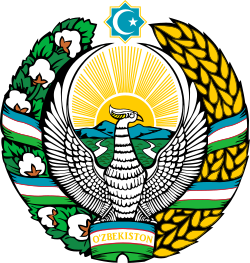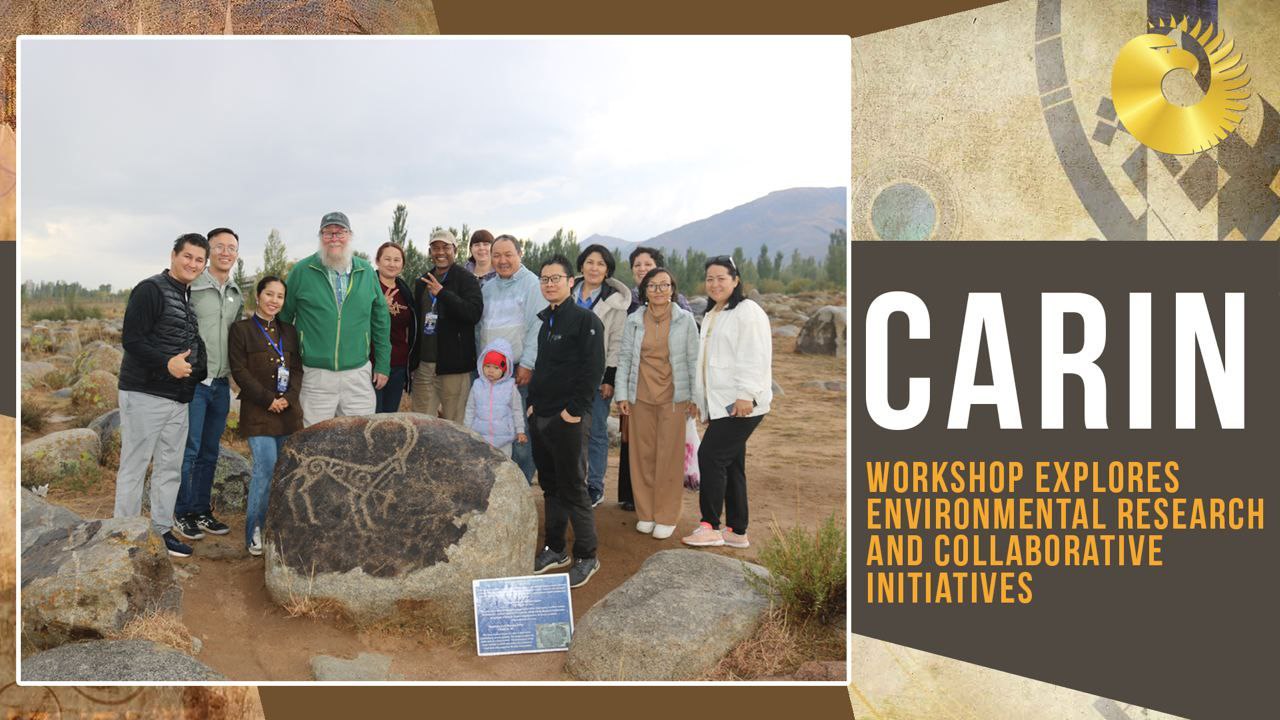
TSUULL Senior Lecturer Attends CARIN Regional Workshop 2023 on Environmental Research and Collaborative Initiatives As Part of the NASA LCLUC Program in Cholpon-Ata, Issyk Kul
Between 13-17 September, 2023 Ms. Zulhumar Zhumanova, a Senior Lecturer of TSUULL Department of Foreign Languages participated in the Central Asia Regional Information Network (CARIN) Workshop, which explored environmental research and collaborative initiatives, was held in the Issyk Kul region of the Kyrgyz Republic. Her active participation has been recognized with a Workshop Certificate.
The Sustainable Development Goals are a call to action for all countries - poor, rich, and middle-developed. Their aim is to improve well-being and protect our planet. Supported through the NASA Land Cover/Land Use Change (LCLUC) Program, CARIN is dedicated to fostering collaboration, advancing the land system, and building capacity within Central Asia.
After three days of training, participants continued their research in the picturesque setting of Cholpon-Ata on the north shore of Issyk-Kul, Asia's third-largest lake, providing a serene backdrop for this gathering. Participants can look forward to not only enriching their minds but also relaxing by the shores of this remarkable lake, often referred to as the "warm lake" in Kyrgyz, due to its inviting waters. As CARIN and GOFC/GOLD continue their mission to advance land system science in Central Asia, this workshop marks a significant step towards building a stronger, more informed, and collaborative research community in the region.
This workshop brings together resource managers and scientists, providing a platform for addressing regional concerns, sharing technological advancements, and fostering knowledge exchange among regions. The training program features a rich tapestry of scientific discussions, technical training, and professional development sessions. All training sessions were conducted exclusively in English, with no translation services provided, emphasizing a critical goal of the program - enhancing scientific communication in English.
The ECS program garnered significant interest, with participants having the unique opportunity to engage in an immersive training experience designed to hone their skills and knowledge.
The Central Asia Regional Information Network (CARIN) stands as a vital part of the Global Observations of Forest Cover and Land-use Dynamics (GOFC–GOLD) constellation of regional networks. Led by a team of dedicated regional coordinators, CARIN has been making significant strides in achieving its goals. The main role of GOFC/GOLD is to act as a coordinating mechanism for national and regional activities. To achieve its goals, GOFC/GOLD has developed several regional networks consisting of data providers, data brokers, and data users. These networks comprising resource managers and scientists play a crucial role in enhancing observing systems' sustainable capacity and ensuring effective utilization of data. Regional GOFC/GOLD networks are strengthened through a series of regional workshops that engage the user community in addressing regional issues, expressing concerns, advocating for regional needs, and facilitating knowledge transfer between regions.
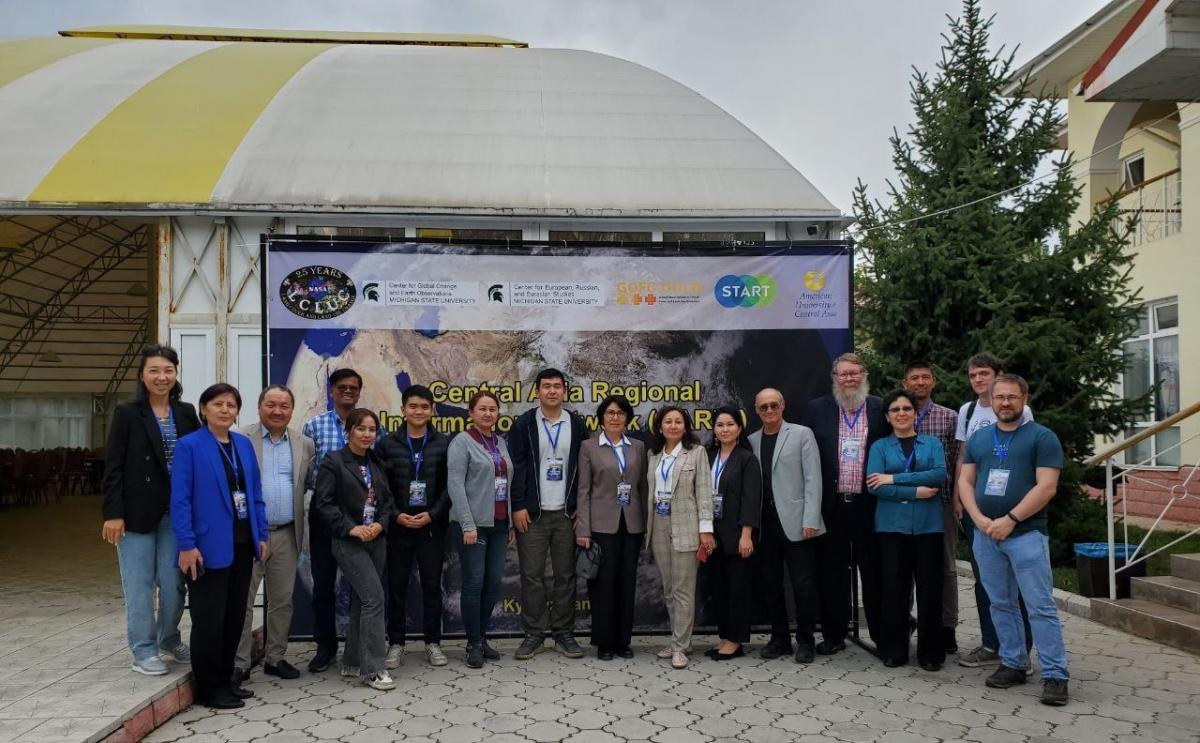
The highlight of this event was the launch of the CARIN Early Career Scientists (ECS) program, tailored to cultivate a talented cohort of individuals with a keen interest in comprehending, characterizing, and modeling land systems within the Central Asian region. Plenary talks feature insights from Central Asia scholars and NASA LCLUC experts, delving into environmental changes in the region.
A successful workshop organized by the Central Asia Regional Information Network (CARIN) and the departments of ESCS and Applied Geology was recently concluded at the picturesque Aurora Plus Resort Center. Following two virtual regional meetings in May 2021 and 2022, CARIN made a significant stride by hosting an in-person workshop, marking the first post-pandemic gathering. The event served as a platform to review the latest research findings, discuss collaborative research priorities, foster networking among regional and international scientists, and provide training for a select group of Early Career Scientists (ECS) from Central Asia.
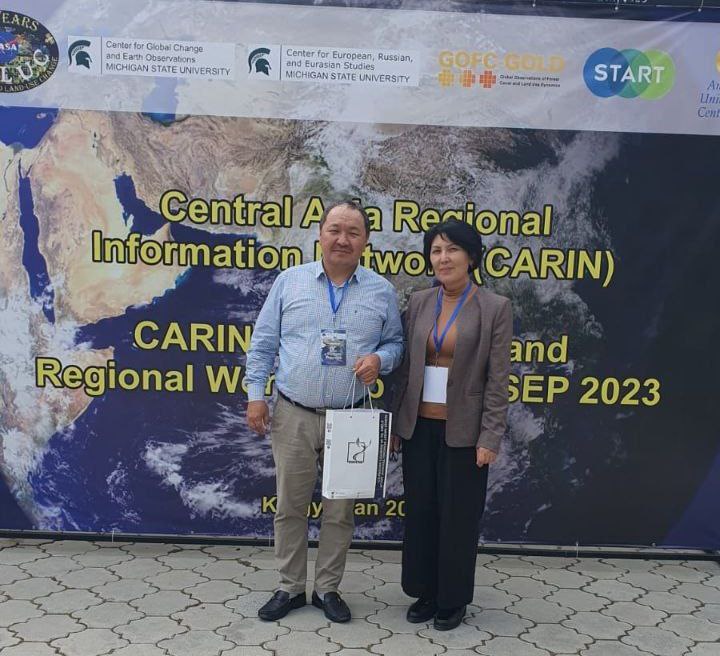
Distinguished figures in the field, including CARIN coordinators Prof. Sagynbek Orunbaev and Prof. Geoff Henebry, NASA LCLUC Program Officer Dr. Garik Gutman, and GOFC-GOLD Network Liaison Dr. Krishna Vadrevu, delivered the opening speeches. The plenary sessions that followed featured renowned scientists from Central Asian countries as well as the United States and Germany.
The plenary talks centered around recent research on crucial aspects of environmental changes in Central Asia. Emphasizing the utilization of geospatial technologies to detect and characterize these changes, the discussions also highlighted the key challenges of adapting land and water management to evolving environmental conditions. Moreover, a dedicated plenary session showcased concise research introductions by the ECS cohort, further enriching the scientific exchange.
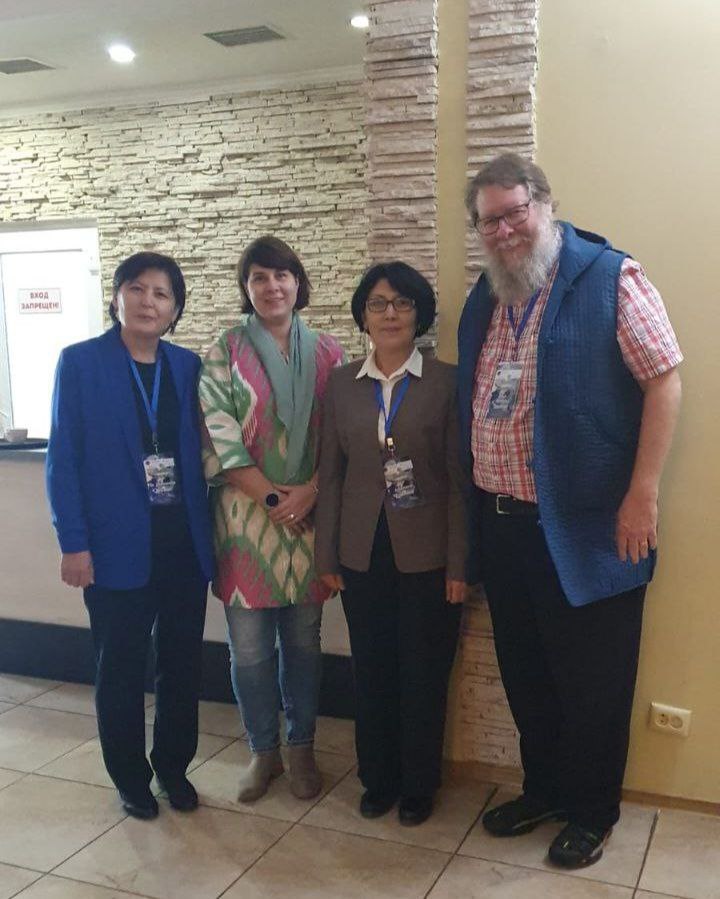
Parallel working sessions were focused on identifying and articulating priority research projects for Central Asia. Participants collaboratively developed regional research roadmaps and drafted comprehensive action plans to initiate and sustain collaborative research efforts.
Cultural enrichment was an integral part of the workshop experience, with a range of engaging events organized for the participants. In addition to the scientific sessions, attendees had the opportunity to explore the rich heritage of Kyrgyz Republic by visiting notable cultural sites. They were treated to a visit to the RukhOrdo Cultural Center, named after the renowned writer Chingiz Aitmatov. Furthermore, participants had the privilege of exploring the fascinating museum of petroglyphs in Cholpon-Ata, delving into the ancient rock art that tells the story of the region's history. Adding to the immersive experience, the picturesque Grigorievskoye Gorge offered a breathtaking backdrop for participants to connect with nature and appreciate the region's natural beauty. These cultural excursions provided a well-rounded experience for workshop attendees, allowing them to gain a deeper understanding of the cultural and environmental significance of Central Asia.
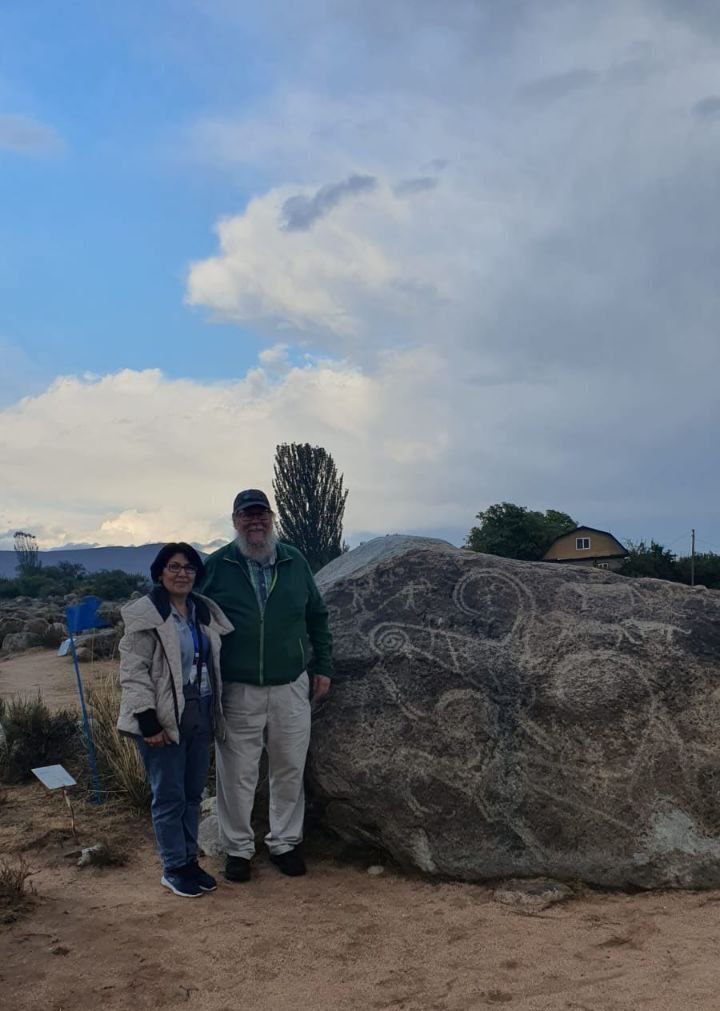
The CARIN Workshop succeeded in fostering a vibrant environment for knowledge sharing, interdisciplinary collaboration, and scientific development. Attendees left the event equipped with valuable insights, actionable research plans, and an expanded network of professional connections, poised to contribute to Central Asia's sustainable future.
Useful information:
https://www.centralasiarin.net/meetings-events
CARIN Workshop 2023: https://www.centralasiarin.net/2023carinworkshop
Early Career Scientists (ECS) Program: https://www.centralasiarin.net/2023-early-career
NASA Land-Cover and Land-Use Change (LCLUC) Program https://lcluc.umd.edu/
Source: https://www.auca.kg/en/auca_news/5859/
Credit: Zulhumar Zhumanova


